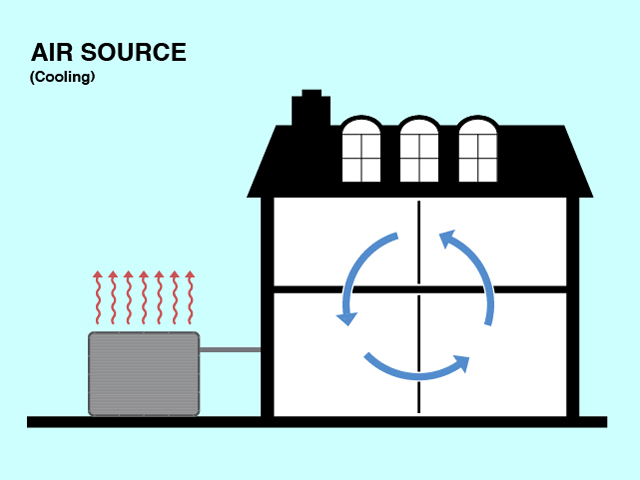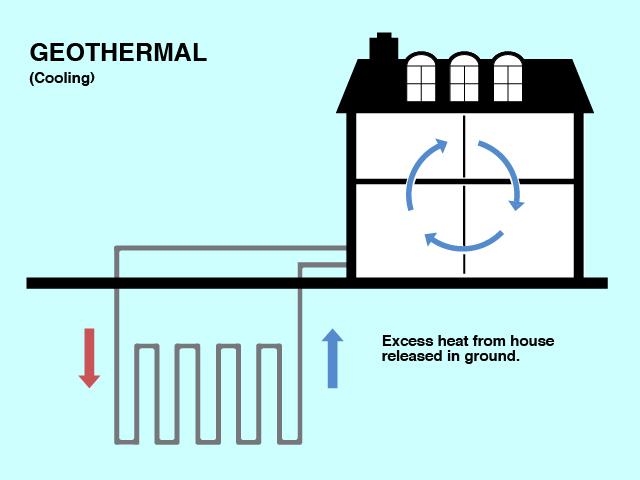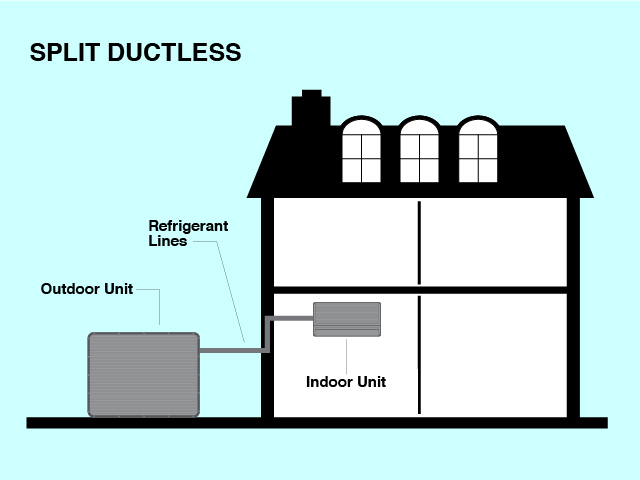
Heat pumps provide highly efficient heating and cooling and humidity control. These systems move (or pump) heat from one place to another, eliminating the energy waste associated with conventional heating and cooling systems.
There are three types of heat pumps: air source, split ductless and geothermal. Which type is right for your home? Let's look at how each works and compare their advantages and disadvantages.

Air source heat pumps
Air source heat pumps absorb heat from the outside air and transfer it inside using a refrigerant to provide heating. In summer, the system works in reverse, pulling heat from indoors and moving it outside.
Air source heat pumps are the most widely used. They do lose some efficiency and heating capacity at very cold temperatures, but cold climate models are available.

Geothermal heat pumps
Geothermal heat pumps use a water solution circulating through pipes buried in your yard to transfer heat into and out of your home. They take advantage of the relatively constant temperatures underground.
Geothermal heat pumps can work well in cold climates and are very efficient and reliable. However, they typically come with a higher installation cost.

Ductless mini split heat pumps
Mini split systems include an outdoor compressor and multiple indoor units that circulate refrigerant through tubing. The indoor air handlers are typically installed high on a wall or on the ceiling.
Mini splits operate similarly to air-source models, but they don't require ductwork, making them a good choice for additions or homes without ducts.

Selecting the right system for you
So, selecting a heat pump depends on your space conditioning needs, your budget and your location. Whatever type you choose, you'll realize the benefits energy savings, as well as clean, quiet and low-maintenance operation.
Contact a qualified professional who can help you select the right system for your needs.
